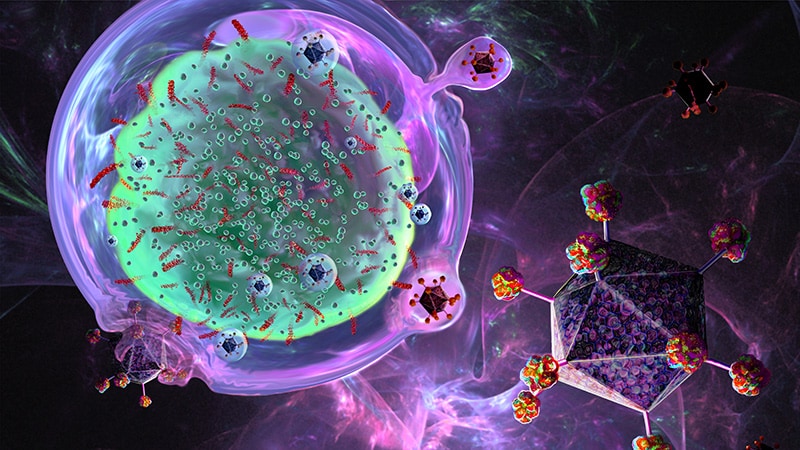FDA Fast Tracks Cabaletta Bio's CABA-201 for Lupus Treatment
Główne pojęcia
Fast Track designation granted for CABA-201 therapy for lupus treatment.
Streszczenie
The FDA has granted Fast Track designation to Cabaletta Bio's CABA-201 cell therapy for systemic lupus erythematosus (SLE) and lupus nephritis (LN). The therapy targets CD19-positive B cells to induce an 'immune system reset' for patients with SLE. The upcoming phase 1/2 clinical trial will enroll two cohorts, one with active LN and the other without renal involvement, with a one-time infusion of 1.0 x 10^6 cells/kg. Fast Track designation expedites drug development for serious conditions with unmet medical needs.
Dostosuj podsumowanie
Przepisz z AI
Generuj cytaty
Przetłumacz źródło
Na inny język
Generuj mapę myśli
z treści źródłowej
Odwiedź źródło
www.medscape.com
FDA Fast Tracks Potential CAR T-Cell Therapy for Lupus
Statystyki
CABA-201 is a 4-1BB-containing fully human CD19-CAR T cell investigational therapy.
The upcoming study will enroll two cohorts, each containing six patients.
The therapy is designed for patients with SLE and lupus nephritis.
Cytaty
"We believe the FDA's decision to grant Fast Track Designation for CABA-201 underscores the unmet need for a treatment that has the potential to provide deep and durable responses for people living with lupus and potentially other autoimmune diseases where B cells contribute to disease." - David J. Chang, MD
Kluczowe wnioski z
by Lucy Hicks o www.medscape.com 05-02-2023
https://www.medscape.com/viewarticle/991501
Głębsze pytania
How might the Fast Track designation impact the accessibility of CABA-201 for lupus patients?
The Fast Track designation granted by the FDA for CABA-201 can significantly impact the accessibility of this potential CAR T-cell therapy for lupus patients. This designation expedites the development and review process, allowing for more frequent communication between the company developing the therapy and the FDA. This can lead to quicker approvals, potentially accelerating the availability of CABA-201 to patients with systemic lupus erythematosus (SLE) and lupus nephritis (LN). Additionally, Fast Track designation can make CABA-201 eligible for accelerated approval and priority review if certain criteria are met, further facilitating its accessibility to patients in need.
What potential challenges could arise in the development of CAR T-cell therapies for autoimmune diseases?
Despite the promising potential of CAR T-cell therapies for autoimmune diseases like lupus, several challenges may arise during their development. One significant challenge is the risk of adverse effects, including cytokine release syndrome and neurotoxicity, which have been observed in other CAR T-cell therapies. Balancing the efficacy of the treatment with its safety profile is crucial. Additionally, ensuring the specificity of the therapy to target only the diseased cells while sparing healthy cells is a complex task. The long-term durability of responses and potential for disease relapse are also important considerations in the development of CAR T-cell therapies for autoimmune diseases.
How can advancements in CAR T-cell therapy for lupus contribute to the broader field of autoimmune disease treatment?
Advancements in CAR T-cell therapy for lupus have the potential to make significant contributions to the broader field of autoimmune disease treatment. By targeting and depleting specific cell populations involved in autoimmune responses, CAR T-cell therapy can offer a more precise and personalized approach to treating autoimmune diseases. Success in developing CAR T-cell therapies for lupus can pave the way for similar treatments in other autoimmune conditions where B cells play a role, expanding the therapeutic options available to patients. Furthermore, the knowledge gained from developing CAR T-cell therapies for lupus can inform the development of therapies for other autoimmune diseases, potentially leading to innovative and effective treatments across a range of conditions.
0
